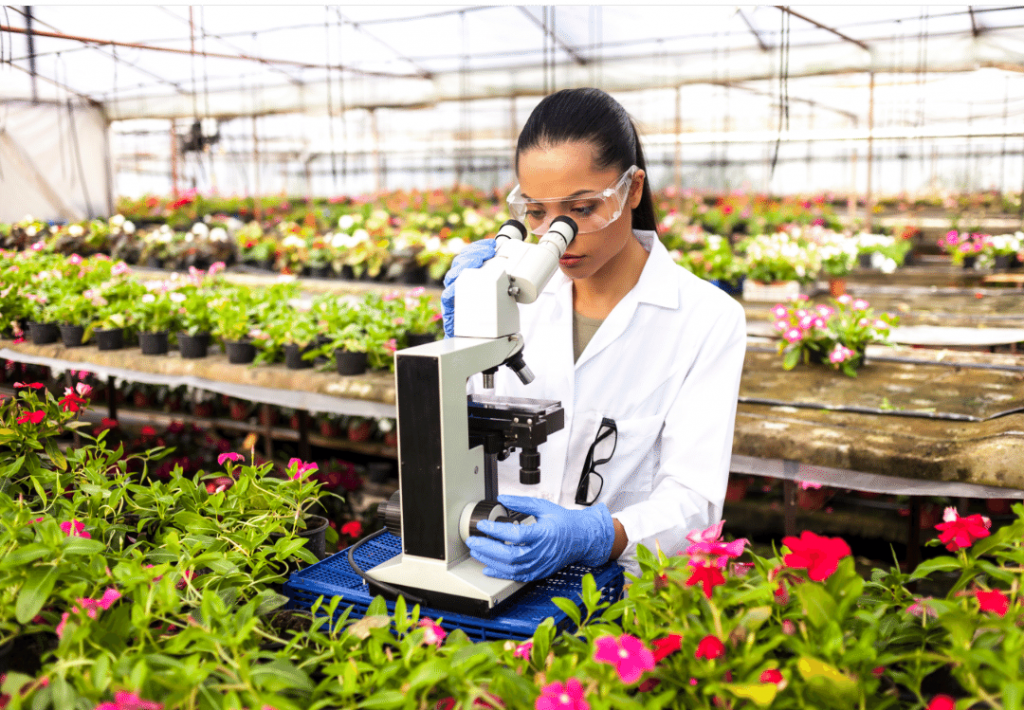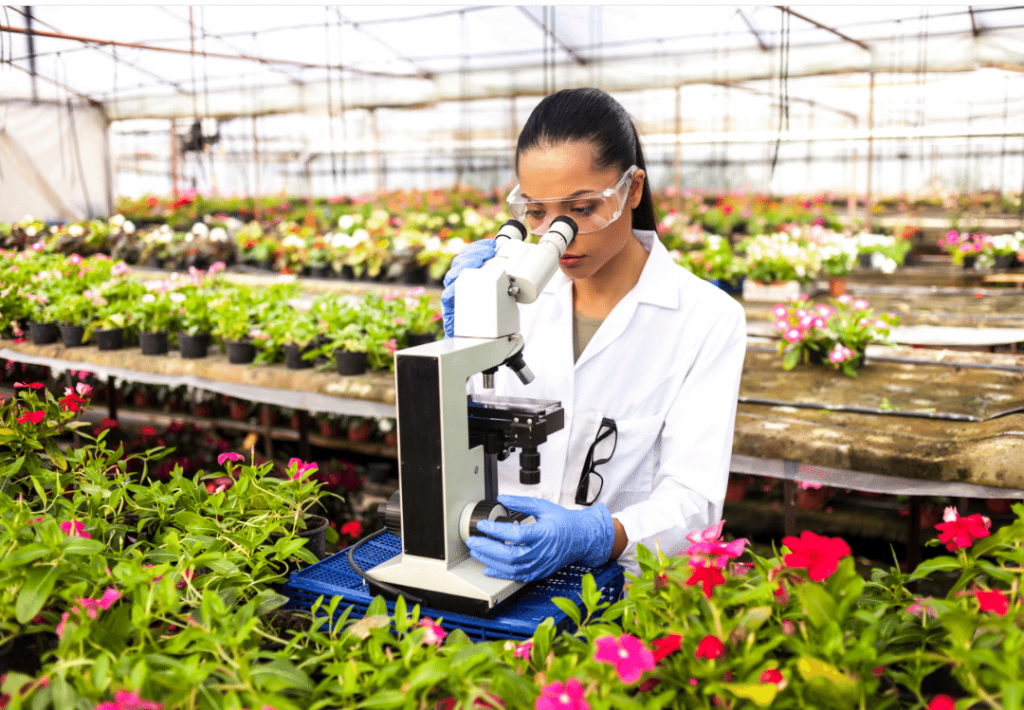Education & Career Trends: July 27, 2024
Curated by the Knowledge Team of ICS Career GPS

Content Credit:
- Article published on in.indeed.com.
Jobs in botany involve working with plants and using plant-related knowledge in broad applications for medical, food, crop breeding and plant conservation purposes. These can include finding effective plant-based cures for chronic illnesses, growing hardy, disease-resistant crops, developing new plant cultures and preserving and propagating endangered plant species.
By learning about job opportunities for botany graduates, you can make an informed decision about pursuing a career in the botanical field.
Here are some common types of botanical jobs:
Types of Botanical Jobs
Here are some common types of botanical jobs you can do with a degree in botany:
1. Environmental Scientist
- Environmental scientists are responsible for collecting botanical samples and other materials, testing them in a laboratory and analysing the results.
- The data helps them to identify different hazards and threats to the environment and develop plans to prevent or mitigate them.
- They recommend alternative energy systems and natural resource management.
- Environmental scientists also write scientific reports and papers on their findings, attend scientific conferences and make scientific presentations.
2. Naturalist
- Naturalists study, identify and record different types of plants and vegetation and their environments, characteristics, issues and uses.
- They explain how human activities, climate changes and weather patterns affect the environment and provide solutions to protect the plant life and wildlife in wetlands, forests, rivers and other ecosystems.
- As part of their work, they may restore natural areas.
3. Biologist
- Plant biologists have in-depth knowledge of different plant species and their biological traits, chemical compositions and medicinal properties.
- Their work involves conducting field research to identify, observe and collect various edible and non-edible plants.
- They test the collected samples to see if they can negatively affect the weather, spread diseases or cause pollution.
- They record their observations, analyse the test results and write detailed reports.
- With their expert knowledge, biologists often help design and develop new biological products such as food, medicines, cosmetics and biofuels.
4. Forester
- Foresters are responsible for enforcing forestry laws and conserving natural resources, natural habitats and forest areas.
- Their work involves ecological restoration and management of protected areas.
- They monitor forest fires, track wildlife and implement plans for insect and disease reduction.
- They record the forest trees, plan new forest plantations, oversee timber harvesting and raw material extraction in forested areas, educate locals on the benefits of protecting forests and cultivate positive relationships with them.
- They also maintain forest roads, water sources and tourist spots and conduct guided tours through the forests.
5. Horticulturist
- The principal responsibility of horticulturists is to research how to improve plant and crop quality and increase their yield.
- They use their extensive botanical knowledge to find effective ways to manage pests, diseases and weeds, as well as cultivate vegetables, fruits and flowers.
- While developing and growing better plant strains, they comply with legal organic cultivation regulations.
- Their work involves making administrative, financial and business plans, negotiating contracts with suppliers and buyers and storing and transporting produce.
6. Environmental Specialist
- Environmental specialists conduct field studies to determine environmental issues, locate hazardous sites and collect soil and water samples.
- They analyse the collected samples and write detailed reports on their environment-related research and findings.
- They find ways to reduce pollution and develop, implement and oversee programmes to prevent spills of hazardous materials into the environment.
- Their responsibilities include preparing environmental permit applications and license agreements and submitting these to the appropriate regulatory agencies.
7. Agricultural Research Scientist
- Agricultural research scientists carry out research on plant breeds, plant diseases, plant pests and soil types to improve agricultural yields.
- They may plan and implement land management methods to enrich the soil and prevent soil erosion.
- They experiment with plant breeding techniques and cross different plants to create plant hybrids with desirable characteristics.
- These can include better nutrition, resistance to pests and diseases, the ability to withstand drought and tolerance to extreme humidity and temperature changes.
8. Ecologist
- An ecologist studies the relationships that biological organisms have with one another and with their environment.
- As part of their work, the ecologist conducts surveys and assessments of environmental sites, natural habitats and natural resources.
- They collect specimens, provide technical expertise in managing fragile ecosystems and endangered species and oversee environmental infrastructure projects.
- Ecologists collaborate and communicate with the public and their clients about monitoring erosion control.
- In their work, they follow appropriate safety protocols and procedures.
- They gather and analyse reports and complex data to reach an accurate conclusion.
What skills are essential for botanical jobs?
While some botanical jobs may require certain specialised skills, most employers look for the following skills:
- Research skills
- Organisation skills
- Communication skills
- Collaboration skills
- Presentation skills
…
Have you checked out yesterday’s blog yet
5 Tips for Choosing the Right Upskilling Course
(Disclaimer: The opinions expressed in the article mentioned above are those of the author(s). They do not purport to reflect the opinions or views of ICS Career GPS or its staff.)
Like this post? For more such helpful articles, click on the button below and subscribe FREE to our blog.





One Reply to “8 Interesting Careers in Botany”